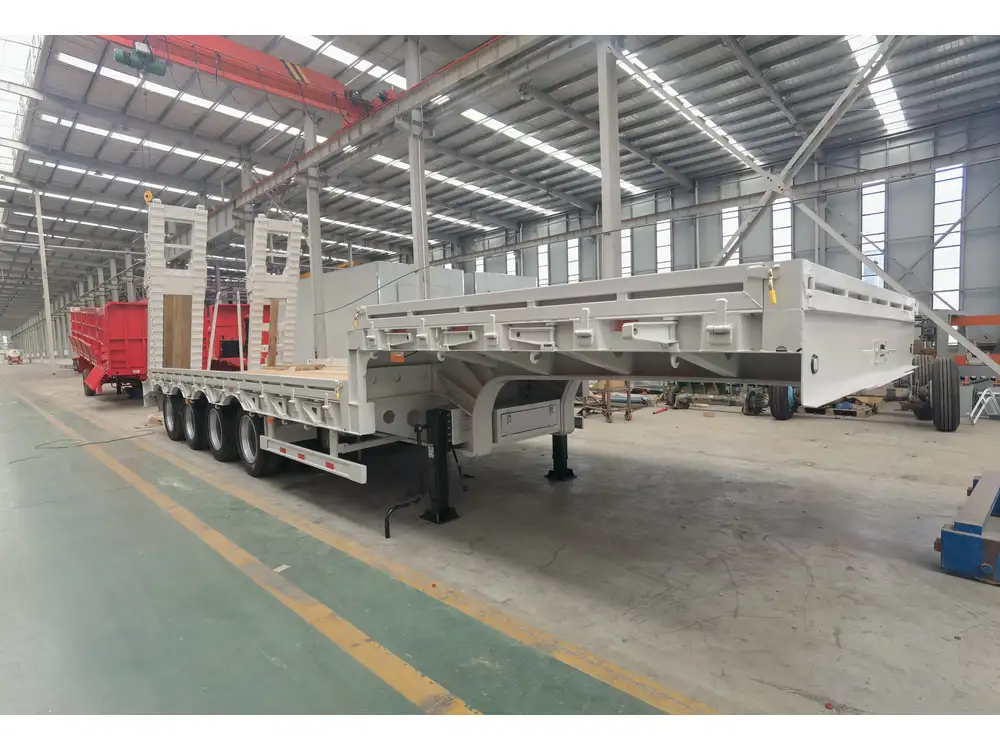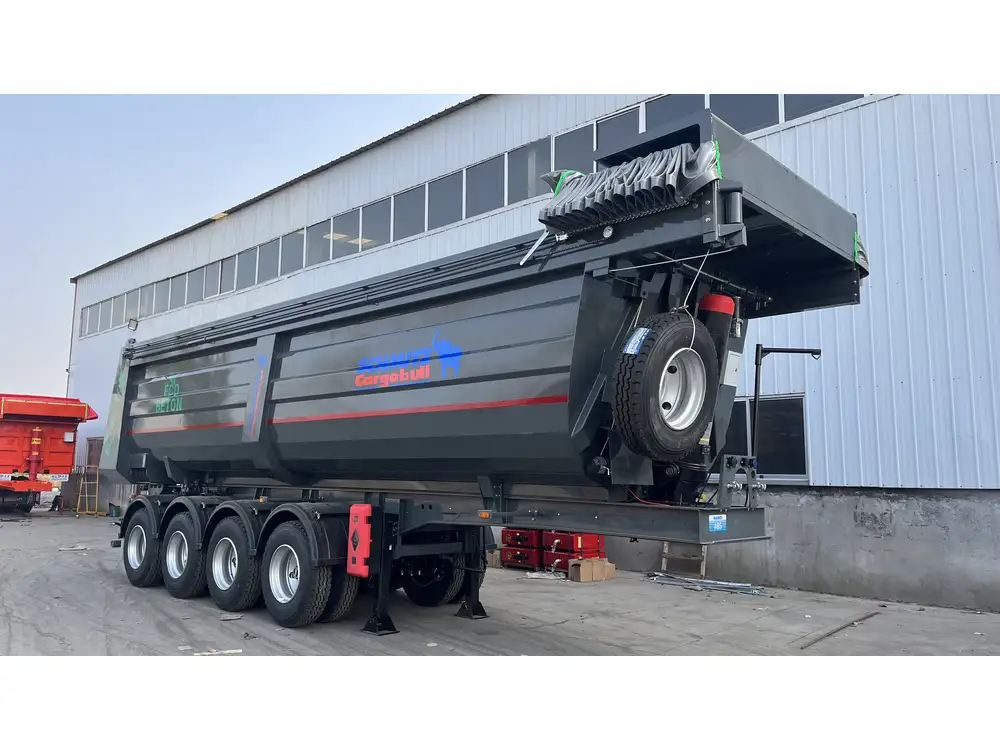When it comes to construction, landscaping, and various hauling applications, knowing the specifics of your equipment is crucial. One common question among operators, owners, and logistics managers is: How much does a 14 dump trailer weigh? The weight can significantly affect your towing capabilities, licensing requirements, and overall operational efficiency. This guide delves into the nuances and complexities surrounding the weights of 14 dump trailers, providing a thorough understanding to aid in your decision-making processes.
What Is a Dump Trailer?
A dump trailer is an essential piece of equipment used for transporting a variety of materials, including gravel, sand, dirt, and debris. Unlike standard trailers, dump trailers include a hydraulic lift system that allows the rear of the trailer to tilt, facilitating the unloading of heavy loads. Dump trailers come in various sizes and configurations, with the 14 dump trailer being a popular choice due to its balance of capacity and maneuverability.
Breakdown of Weight Categories
Empty Weight vs. Loaded Weight
To accurately assess the implications of a 14 dump trailer’s weight, it’s essential to distinguish between empty weight (the weight of the trailer without any load) and loaded weight (the total weight when fully loaded).
| Weight Type | Description |
|---|---|
| Empty Weight | The weight of the trailer alone, without cargo. |
| Loaded Weight | The total weight of the trailer plus its maximum cargo capacity. |

Typical Weight Range for a 14 Dump Trailer
The weight of a 14 dump trailer can vary significantly based on factors such as material construction, design features, and specific manufacturers. Below is a breakdown of typical weight ranges:
- Empty Weight: Approximately 3,000 to 6,000 pounds.
- Loaded Weight: Depending on load capacity (typically ranging from 7,000 to 14,000 pounds), the loaded weight can reach upwards of 20,000 pounds or more.
| Trailer Type | Typical Empty Weight | Typical Load Capacity | Typical Loaded Weight |
|---|---|---|---|
| 14 Dump Trailer | 3,000 – 6,000 lbs | 7,000 – 14,000 lbs | 20,000 lbs – 24,000 lbs |
Material and Design Impact on Weight
The weight of a dump trailer is heavily influenced by its construction materials and design. Common materials include:
- Steel: More durable and heavy-duty but increases weight.
- Aluminum: Lightweight and rust-resistant but may have lower load capacity.
Comparison of Material Costs and Benefits
| Material | Benefits | Drawbacks |
|---|---|---|
| Steel | High durability, suitable for heavy loads | Heavier, prone to rust |
| Aluminum | Lightweight, good corrosion resistance | May not support as much weight |

Weight and Towing Considerations
Towing Capacity of Your Vehicle
Understanding the weight of your 14 dump trailer is imperative, particularly in relation to your towing vehicle. This ensures compliance with local regulations and maximizes safety on the road.
Key Factors to Consider:
- Towing Vehicle Rating: Ensure that your towing vehicle’s Gross Vehicle Weight Rating (GVWR) can handle the combined weight of the trailer plus its load.
- Distribution of Weight: Evenly distributed weight contributes to better handling and safer towing dynamics.
- Braking System: Heavier loads require more robust braking systems.

Calculating Total Weight
To determine the total weight when using a 14 dump trailer, consider the formula:
[ \text{Total Weight} = \text{Empty Weight} + \text{Material Load Weight} ]For instance, with an empty weight of 5,000 pounds and a load of 10,000 pounds:
[ \text{Total Weight} = 5,000 + 10,000 = 15,000 \text{ pounds} ]Regulatory and Licensing Implications
It is vital to understand the regulatory requirements surrounding trailer weights and licensing. Depending on your region, different laws may apply:
- Weight limits: Many states have specific weight limits for trailers, which can affect driving permits.
- Licensing: Larger trailers, especially when combined with heavy loads, may require a commercial driver’s license.
| Regulatory Factor | Details |
|---|---|
| Weight Limits | Varies by state; ensure compliance with local laws. |
| Licensing Requirements | Standard Class D for smaller trailers, but larger may require specific permits. |
The Role of Suspension Systems
The suspension system of a dump trailer greatly affects its ability to carry weight and maintain stability.

Types of Suspension Systems:
- Spring Suspension: Traditional and reliable, offering a balance between weight capacity and comfort.
- Air Suspension: Provides superior weight distribution and enhances ride quality, but typically at a higher cost.
Effect on Load Capacity
A robust suspension system ensures that trailers can handle maximum load capacities while maintaining stability.
Maintenance Considerations Related to Weight
Owning a 14 dump trailer entails responsibilities in terms of maintenance, especially with regard to weight management:
- Tire Pressure: Overloading can lead to tire blowouts, so regular checks of tire pressure are essential.
- Brakes: Heavier loads wear brakes faster; regular inspection ensures safe operation.
- Structural Integrity: Frequent checks on the trailer’s frame and bed can prevent accidents.

Conclusion
In conclusion, understanding the weight of a 14 dump trailer is not merely a question of numbers; it embodies a multitude of factors including construction materials, design specifics, towing vehicle capabilities, regulatory compliance, and maintenance needs.
Each decision linked to your dump trailer—be it the selection of materials, configuration, or usage scenarios—requires careful consideration to optimize performance and safety. With an empty weight ranging from 3,000 to 6,000 pounds and load capacities that can exceed 14,000 pounds, ensuring the right pairing with a suitable tow vehicle and maintaining adherence to regulations is paramount for success in your hauling operations.
Being informed and strategic about these factors will facilitate not just compliance but also enhance operational efficiencies, leading to better productivity and profitability in your endeavors. Whether you’re in construction, landscaping, or any other field that requires trailer utilization, an in-depth understanding of your equipment will pave the way for effective management and outstanding performance.



